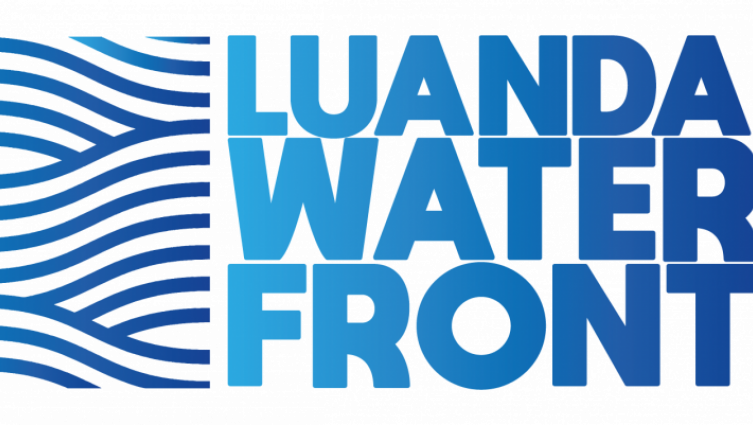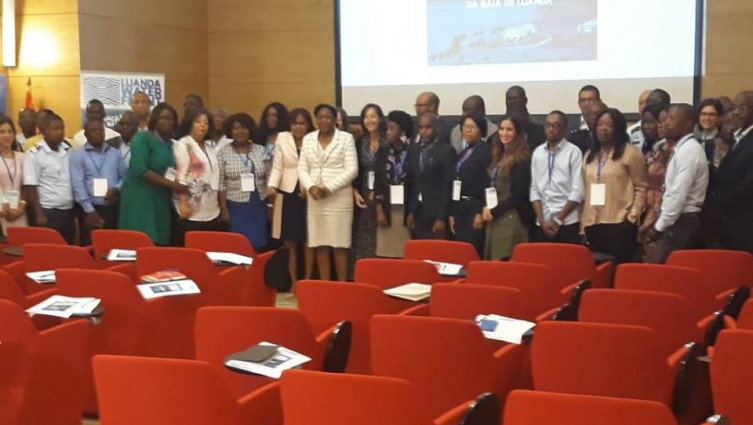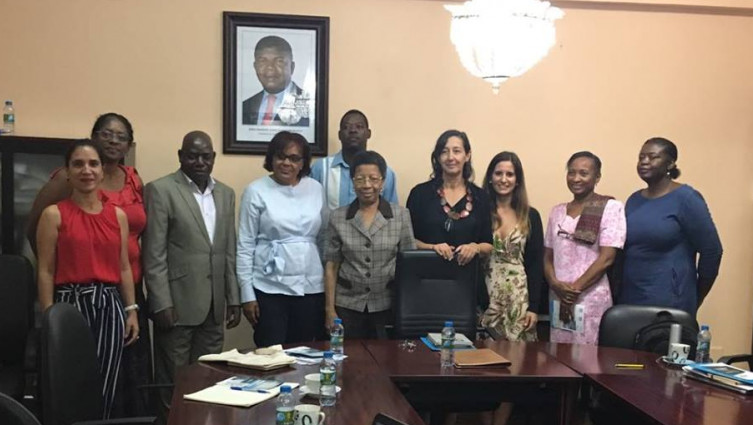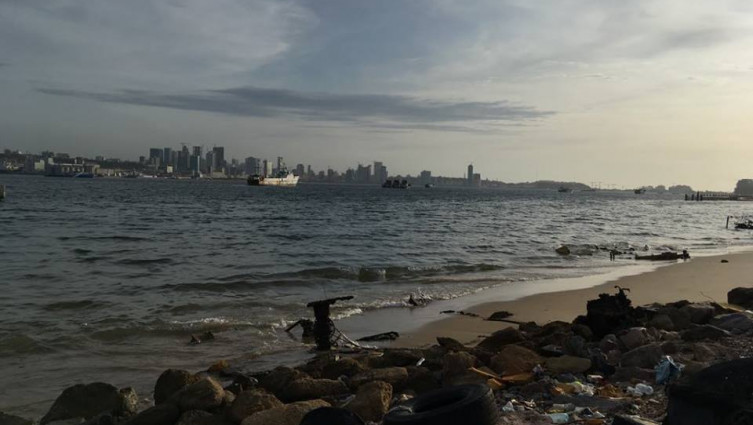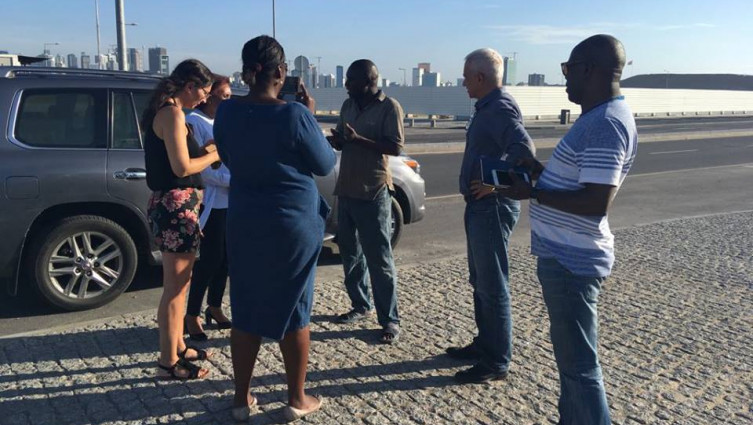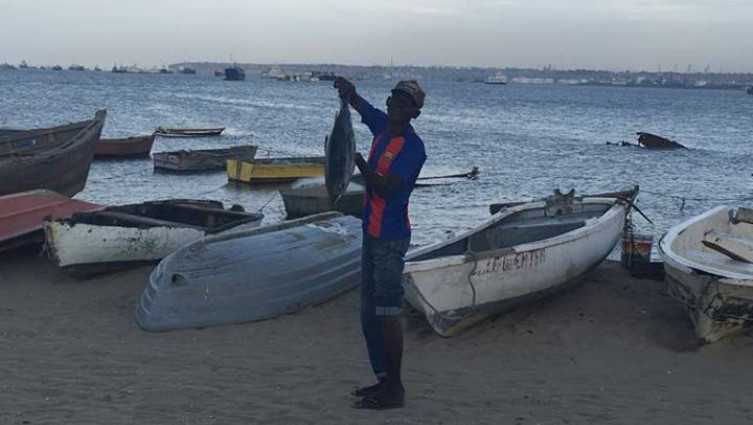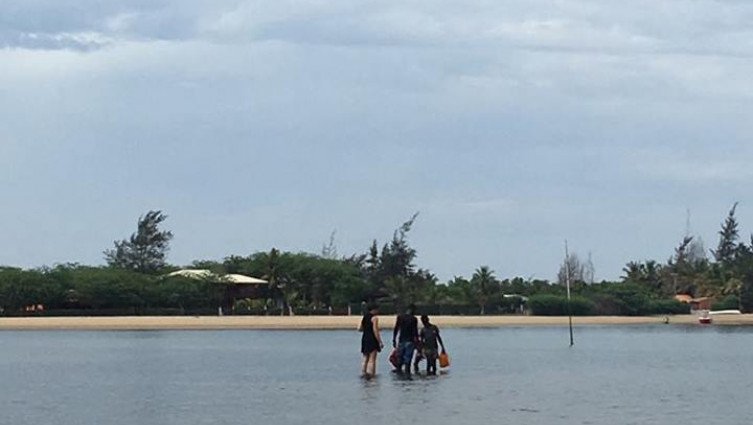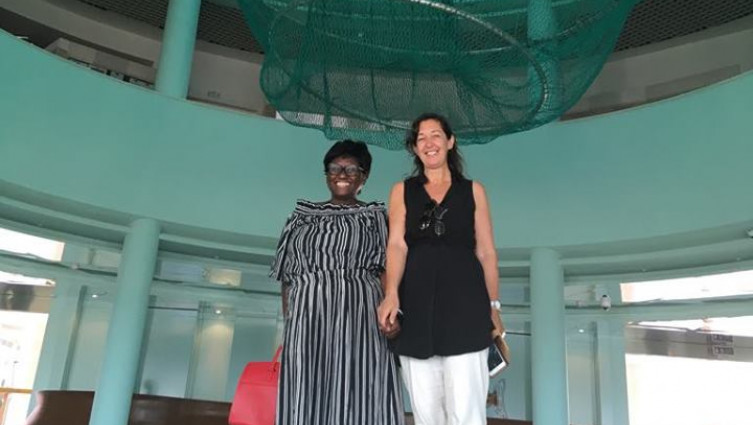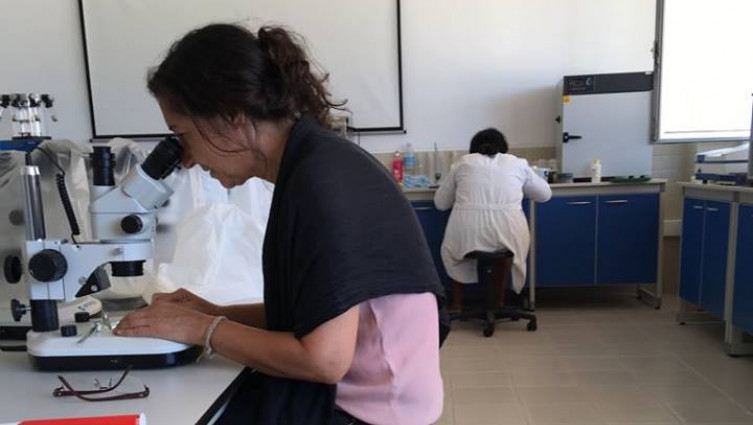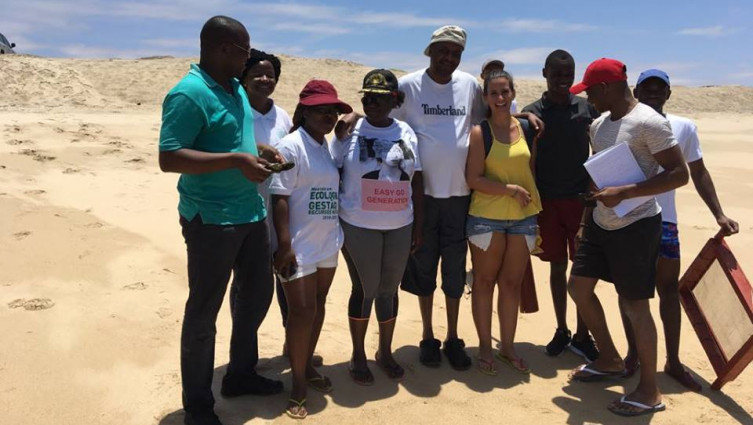Postcard from Luanda, Angola
Alexandra Teodósio and Vânia Baptista went to Angola to participate in the kickoff of project LUANDAWATERFRONT, which is coordinated by CCMAR/UAlg and sponsored by the Aga Khan Development Network and Fundação para a Ciência e Tecnologia. We talked with them to know more about the visit and this interesting project.
Why did you go to Angola?
Luanda Bay is a rich ecosystem providing a wide diversity of services, however, multiple pressures are threatening this ecosystem. Solid waste and untreated domestic effluents are released daily into the Bay, hampering subsistance fishing, the practice of nautical sports, and of other leisure activities. The Angolan Authorities recently approved a program to rehabilitate the area surrounding the Luanda Bay. The prediction of the environmental responses to rehabilitation actions, as well as the mitigation of current threats to the Luanda Bay, requires an integrated ecological assessment. This includes the detection of harmful algal blooms (HABs), invasive spcies and the evaluation of trophic dynamics. The project LUANDAWATERFRONT will provide a biodiversity database and a deeper understanding of ecosystem functioning in the Luanda Bay and compare it to a reference site, the Mussúlo Lagoon.
What was the highlight of your visit?
The kick off of the Project LUANDAWATERFRONT aimed to show the project to stakeholders of the bay and to implement, with Instituto Nacional de Investigaçao Pesqueira e Marinha (INIPM), the sampling strategies for the next year together with Faculdade de Ciências Universidade Agostinho Neto in Luanda, and Academia de Pescas e das Ciências do Mar do Namibe. We visited different places to define the sampling sites in Luanda Bay and Mussulo Lagun. We met with associated partners: Progest (Eng. José Paulo Nóbrega), Luanda Island Administrator (Dr. Paulo Neto), associations of fishermen and residents in the bay.
Does this visit open new opportunities for you and other CCMAR researchers?
We (CCMAR and the Universidade of Algarve) under the framework of LUANDAWATERFRONT started the implementation of collaborative platform CCEMAR (Colaborative Centre of Excellence in Marine Sciences for Africa). The partners are now angolan institutions (INIPM, Faculdade de Ciências Universidade Agostinho Neto, Academia de Pescas e das Ciências do Mar do Namibe). In the next three years several surveys to study marine biodiversiy and ecosystem function in angolan coast will be carry out coordinated by CCMAR.
Find out more about project LUANDAWATERFRONT on its website, Facebook and Instagram.

